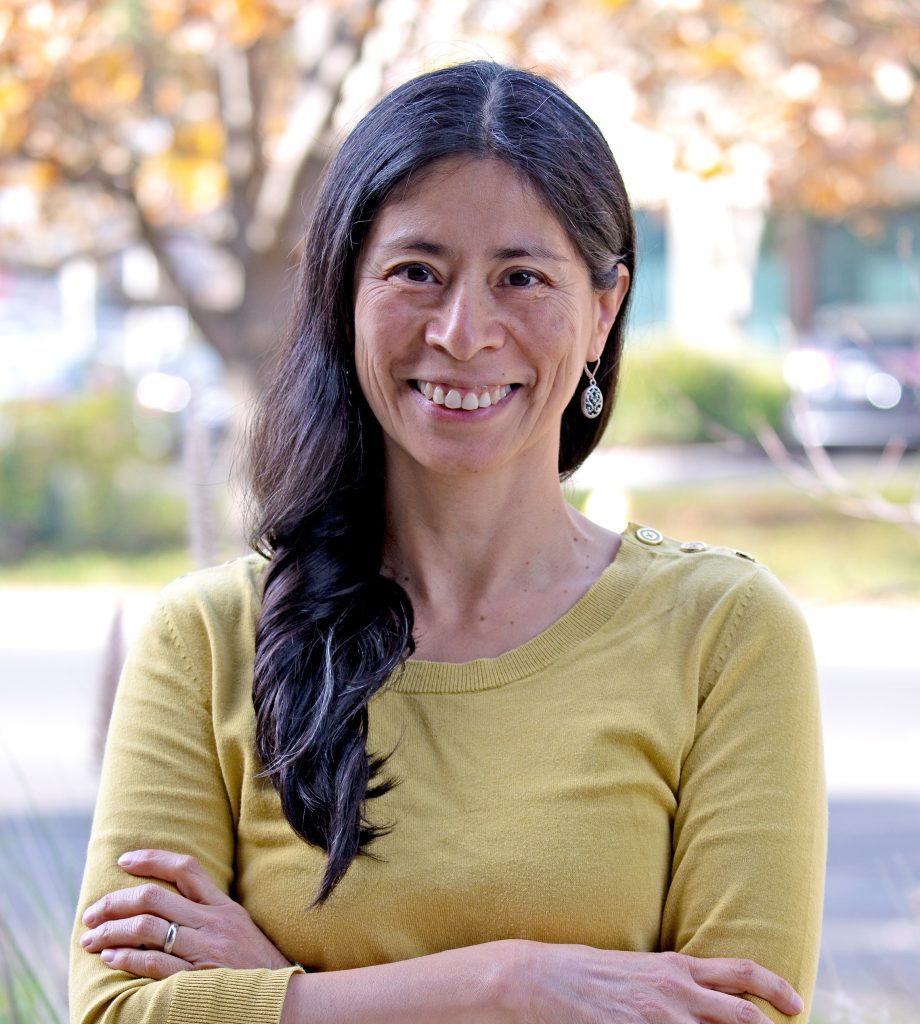Dr. Christopher E. Anderson. Evaluating Associations of WIC Food Benefit
Redemption with Child Dietary Intake and Continued WIC Participation. Public Health Foundation Enterprises. Area of focus: WIC.

Christopher Anderson, PhD, MSPH, is a chronic disease epidemiologist studying early childhood nutrition and growth, particularly among children participating in the Special Supplemental Nutrition Program for Women, Infants, and Children (WIC). He is an Associate Research Scientist with the largest local agency WIC program in the nation, Public Health Foundation Enterprises (PHFE) WIC, located in the Los Angeles metropolitan area. Dr. Anderson has been conducting research with WIC administrative data for 6 years, with a goal of assessing how the WIC program contributes to early childhood diet and growth outcomes among participants, and how contextual factors modify the impacts of WIC policies on nutrition and growth, in order to ensure the benefits of WIC participation are maximized for all participants. Dr. Anderson’s research has focused on WIC-issued infant formula and the relationship with childhood obesity, on WIC services during the COVID-19 pandemic, and on the associations between an enhanced WIC Cash Value Benefit for fruits and vegetables with the amount and diversity of redeemed produce. Presently he is studying how redemption of WIC food packages varies by child and household characteristics, and how WIC benefit redemption contributes to continued program participation and early childhood diet.
Research team includes:
Dr. Shannon Whaley, Director of Research and Evaluation Division at PHFE WIC
Ms. Martha Meza, Project Specialist in Research and Evaluation Division at PHFE WIC
Publications:
Anderson CE, Whaley SE. Cross-sectional associations of Special Supplemental Nutrition Program for Women, Infants, and Children benefit redemption and diet among children ages 1-4 years in California. Am J Clin Nutr. 2024 Aug;120(2):320-327. doi: 10.1016/j.ajcnut.2024.06.002
Anderson CE, Whaley SE. Household WIC Benefit Redemption Varies by Participant and Household Characteristics in Southern California. J Acad Nutr Diet. 2025 Jan 27:S2212-2672(25)00035-8. doi: 10.1016/j.jand.2025.01.014
RIDGE Spotlight: New Research on WIC Food Benefit Redemption and Child Dietary Intake
Dr. Wenhui Feng. Did Pandemic-EBT Benefits Improve Dietary Quality? Tufts
University School of Medicine. Area of focus: School meals.

Wenhui Feng, PhD MPP, is an assistant professor in the Department of Public Health and Community Medicine. She joined Tufts University School of Medicine in 2019. Dr. Feng’s research applies policy analysis to a variety of health policies. She primarily focuses on obesity-related policies, including menu labeling, active transportation, and the Supplemental Nutrition Assistance Program (SNAP). She also examines the policies of the health, and social safety net, including the relationship between policy rules and health outcomes.
Her current work evaluates the role that dollar stores play in the food retail landscape, the Pandemic-EBT’s effects on household food acquisition and dietary quality, as well as the role of local health departments in shaping a system that supports healthy behaviors.
Dr. Feng earned her doctoral degree in public policy from the University at Albany, State University of New York, and a master’s degree from Arizona State University. While a doctoral student, she was a visiting scholar with the American Political Science Association.
Dr. Sarah Hamersma. How Does SNAP Access Prior to Pregnancy Affect Maternal and Infant Health Outcomes? Syracuse University School of Citizenship and Public Affairs. Area of focus: SNAP.

Dr. Sarah Hamersma has spent the last 20 years engaged in research on anti-poverty programs and their implications for health, employment, and economic well-being. Her work on Medicaid and WIC has been published in such outlets as Journal of Public Economics, Journal of Policy Analysis and Management, Journal of Health Economics, Applied Economic Perspectives and Policy, Social Science and Medicine, and Health Services Research. Her initial work on WIC – examining prenatal participation and birth outcomes — was funded by a RIDGE grant in 2010-2011 and resulted in not just a peer-reviewed paper but a longer-term interest in food and nutrition programs. Interaction with fellow grantees pointed her toward questions of food security among children, leading to another USDA grant (through the UK Center for Poverty Research) and publication. Follow-up work was funded to study intergenerational transmission of food insecurity. Her most recent work in the food and nutrition space – funded by the W.T. Grant Foundation – examines the connection between SNAP work requirements and higher educational attainment of young adults. In parallel to this work, she continues to study Medicaid, having recently published a piece examining maternal and infant health outcomes of early Medicaid expansions in the Journal of Health Economics.
Research team includes:
Mitch McFarlane, PhD Student Collaborator
Dr. Susana Matias. Maternal WIC Participation During Pregnancy and
Gestational Weight Gain. University of California, Berkeley Nutritional Sciences and Toxicology. Area of focus: WIC.

Susana Matias is an Assistant Professor of Cooperative Extension in the Department of Nutritional Sciences & Toxicology at the University of California (UC), Berkeley and Co-Associate Faculty Director of the Berkeley Food Institute at UC Berkeley. She holds a PhD in Epidemiology, with emphasis in International Nutrition, from UC Davis, and completed her bachelor and master studies in Psychology at the Pontificia Universidad Católica del Perú. Dr. Matias has 15 years of experience conducting epidemiological research that focuses on the link between nutrition and health, with particular interest in the mother-child dyad, immigrants, and other disadvantaged populations. She uses different study designs, from cross-sectional, case-control or cohort studies to large randomized controlled trials, to study food access and its connection with dietary patterns and health. Her research has been published in more than 30 papers in peer review scientific journals.
Research team includes:
Caitlin French, PhD. Postdoctoral Scholar, and co-investigator in the RIDGE project
Akshara Shankar, undergraduate student assistant.
Dr. Jesse Rothstein. Student Access to SNAP Benefits During the Transition to
College. University of California, Berkeley School of Public Policy. Area of focus: SNAP.

Jesse Rothstein is the Carmel P. Friesen Professor of Public Policy and Professor of Economics at the University of California, Berkeley. He is the co-founder and co-director, with Till von Wachter (UCLA), of the California Policy Lab. He previously served as Chief Economist at the U.S. Department of Labor and as Senior Economist with the Council of Economic Advisers, Executive Office of the President. From 2015-2020, he served as director of the Institute for Research on Labor and Employment (IRLE) at UC Berkeley.
Rothstein received a Ph.D. in economics and a Masters in Public Policy, both from the University of California, Berkeley, and an A.B. from Harvard. He was named the John T. Dunlop Outstanding Scholar by the Labor and Employment Relations Association in 2011. He is a member of the editorial boards of Industrial Relations, the Review of Economics and Statistics, and Education Finance and Policy. He serves on the executive committee of the Society of Labor Economists and the board of trustees of the Upjohn Institute. He is a research associate of the National Bureau of Economic Research and a fellow of the National Education Policy Center, the CESifo Research Network, the IZA, and the Learning Policy Institute.
Research team includes:
Johanna Lacoe, Research Director
Jennifer Hogg, Research Manager
Alan Perez, Research Assistant
Publications:
Gong, H., Hogg, J., Hoover, S., Lacoe, J., Rothstein, J. (2025). Supporting Young People’s Food Security: CalFresh Participation During and After High School. California Policy Lab, University of California.
RIDGE Spotlight: Student Access to SNAP Benefits During the Transition to College or the Workplace
Katherine Engel. PhD Candidate. The Effect of SNAP Benefit Distribution on Subjective Well-Being. American University. Area of focus: SNAP.

Katie is a PhD candidate in the Department of Public Administration and Policy in the School of Public Affairs at American University. She plans to defend her dissertation and complete her doctoral degree in May 2024. Her interests span a range of topics concerning the social safety net and well-being, and she is particularly interested in the role of family support policies in reducing health disparities. In her dissertation, Katie focuses on the effect of the Supplemental Nutrition Assistance Program (SNAP) on mental health and subjective well-being.
Prior to her doctoral studies, Katie worked as Director of Prospect Research at the University of Notre Dame. She also served as an AmeriCorps VISTA and worked on expanding SNAP use at farmers’ markets. Katie earned a bachelor’s degree in English from Pepperdine University and a master’s degree in public policy from Rochester Institute of Technology.
Publications:
Engel, K. (2025). The effect of SNAP benefit distribution on subjective well-being. Review of Economics of the Household, 1-36. doi: 10.1007/s11150-024-09755-0
RIDGE Spotlight: Research Investigates Consequences of the Monthly SNAP Benefit Issuance Schedule for Participant Well-Being
William Clay Fannin. PhD Candidate. Exploring the Effects of SNAP Certification Interview Waivers on Program Participation Outcomes. Syracuse University. Area of focus: SNAP.

Clay Fannin is a doctoral candidate in public administration at Syracuse University, specializing in social policy and public finance. His research interests include administrative burden in social programs and questions about how to balance competing objectives in the design of the social safety net. His ongoing projects investigate how COVID-era SNAP and WIC policy changes impacted program participation outcomes and the effects of easing reporting requirements in SNAP on benefit amounts. For the latter, Clay received the Syracuse University 2022 Larry D. Schroeder Award for Excellence in PhD research. Clay has also studied the relationship between safety net participation and labor market outcomes. He has published in Early Childhood Research Quarterly and The American Review of Public Administration.
Before matriculating to Syracuse University, Clay was a policy analyst at The Council of State Governments where he collaborated with WIC agencies and policy experts to develop, implement, and evaluate program interventions to improve WIC’s certification process.
Clay hails from Kentucky and holds a master’s degree in public policy and a bachelor’s degree in economics from the University of Kentucky.
Erik James. PhD Candidate. Human Discretion in the SNAP Program: How Discretion Affects Case Outcomes and Modifies the Impacts of Interview and Recertification Waivers. University of Pennsylvania. Area of focus: SNAP.

Erik James is a PhD student in Wharton’s Applied Economics program at the University of Pennsylvania. He is a public economist whose research focuses on food assistance programs and the food retail environment. Erik’s primary work studies how differences in SNAP administrative policy impact outcomes for low-income households. This includes exploring the role of SNAP case worker discretion and changes in application requirements on household SNAP participation and targeting. Erik also has active research examining how grocery retailer pricing, variety, competition, and SNAP participation respond to expansions in SNAP and the National School Lunch Program. Other research explores the impact of dollar stores on household nutrition and the interaction between food banks and SNAP. Prior to graduate school, Erik worked at J-PAL North America / MIT and completed his BA in economics at the University of Chicago.
